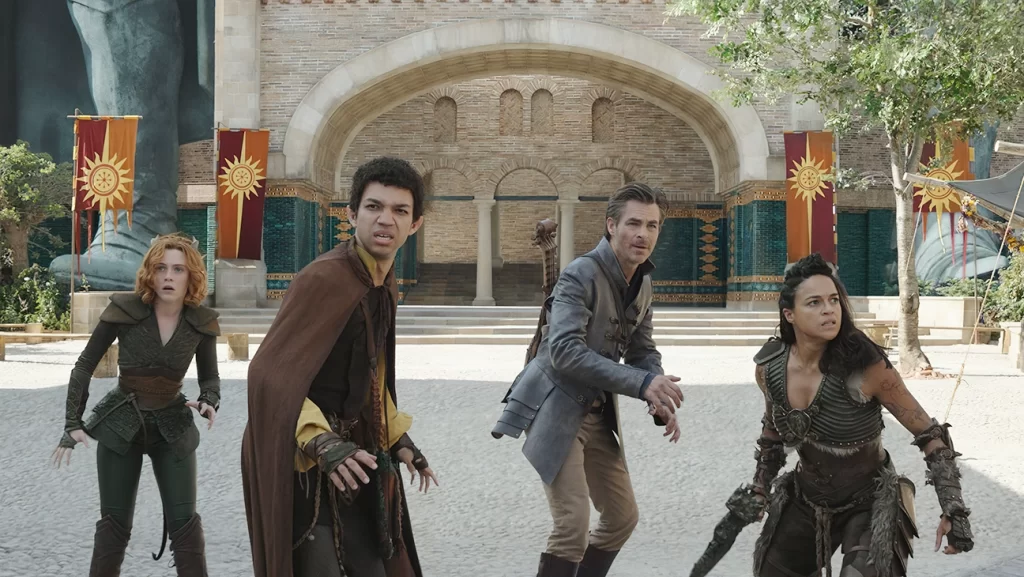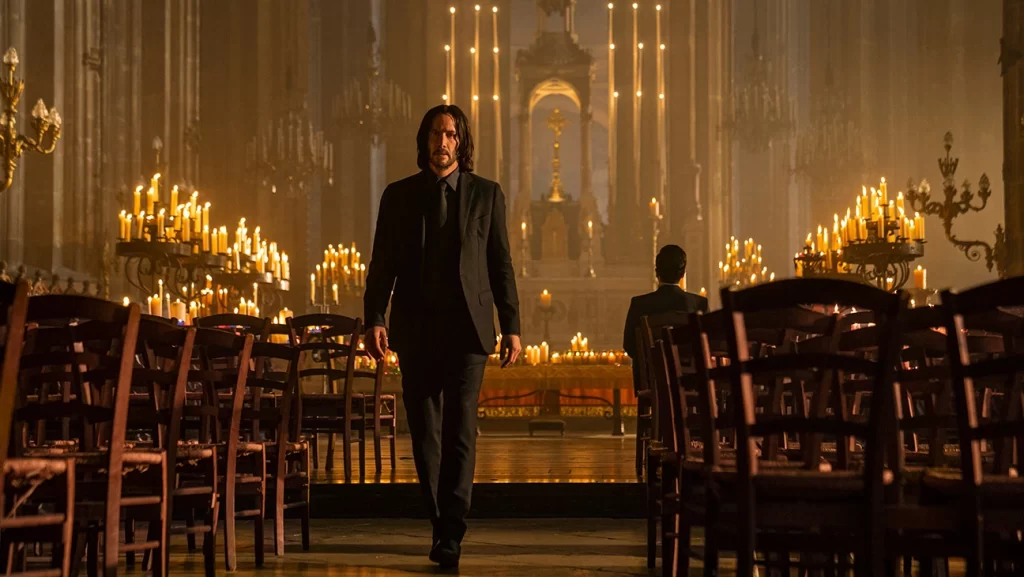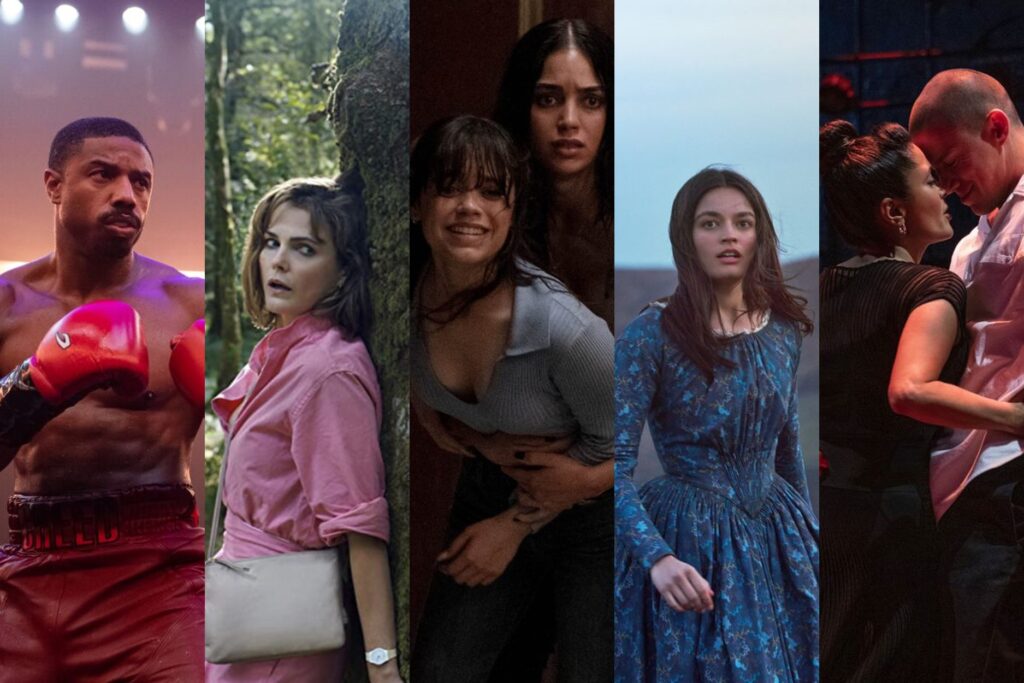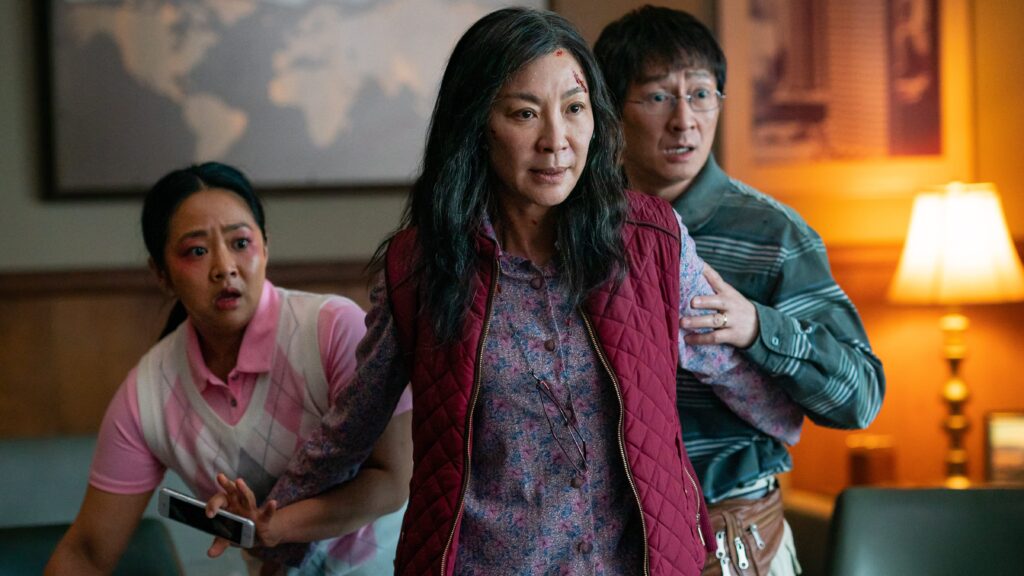Dungeons & Dragons: Honor Among Thieves: Role-Playing Maims

The key to a successful Dungeons & Dragons campaign, as I understand it—my knowledge derives not from personal experience, but from pop-cultural representations in shows like Stranger Things, Freaks and Geeks, and Community—is the careful blend of imagination, collaboration, and luck. Honor Among Thieves, the new wannabe D&D franchise-starter directed by Jonathan Goldstein and John Francis Daley (who also wrote the screenplay with Michael Gilio), possesses each of these qualities in moderate measure, as though it’s distributing a maximum allotment of points across various attributes. It’s mildly creative, a little fortunate (in the current environment, a non-superhero fantasy epic feels positively refreshing), and boisterously cooperative. It is the last of these traits which rescues it from the crowded bucket of corporatized slop, turning yet another soulless IP extension into a passable diversion.
If that sounds like faint praise, remember that we’re talking about a big-screen adaptation of a fucking board game. Yet the pleasure of RPGs lies in their facility for assembling friends around a table (Daley got his acting start playing one of the nerdy gamers on Freaks and Geeks), so it’s fitting that this Dungeons & Dragons functions as an ensemble heist picture. Sure, there are presumed easter eggs in the form of fancy artifacts, mighty creatures, powerful enchantments, and exotic locations. (As the title promises, we begin in a dungeon before eventually meeting multiple dragons.) But most important, there is a motley gang of roguish outlaws, banding together to accomplish a common purpose. Read More




